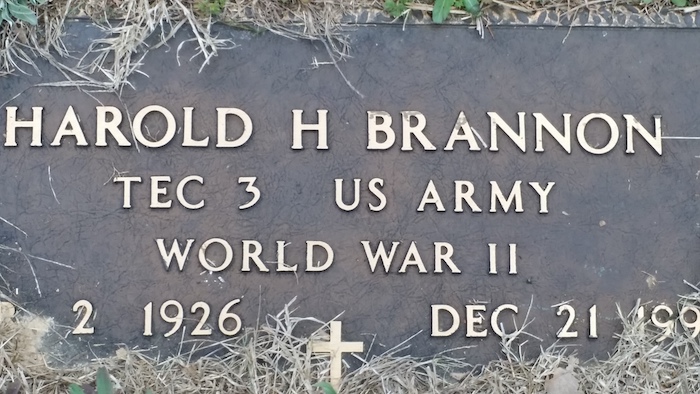Veterans Day (originally known as Armistice Day) is a federal holiday observed annually on November 11, for honoring the military of the USA (who were discharged under conditions other than dishonorable — before the days of participation trophies). It coincides with other holidays, including Armistice Day and holidays that are celebrated in other countries that mark the anniversary of the end of WWII. Major hostilities of World War I were formally ended at the 11th hour of the 11th day of the 11th month of 1918 when the cease fire went into effect. At the urging of major U.S. veteran organizations, Armistice Day was renamed Veterans Day in 1954.
I was born in 1954. My dad was a vet and fought in WWII. He did not tell the truth about his age and joined the army a year sooner than he should have. He was a volunteer farm boy from Tennessee who left his family to do his part for his country. He found himself in Belgium standing in a half-track holding a machine gun in Patton's 3d Army, 4th Armored Division, as they swept into Bastogne at the Battle of the Bulge. From there he was in the "Rat Race to the Rhine" and crossed the rickety bridge at Remagen into Germany. He later saw the same bridge collapse that was full of returning wounded, and he saw the liberation of a concentration camp and horrors that made him look away to the sky with tears and a trembling lip from memories of what was a man's man.
I've asked him several times about his service. His reply that I remember best was, "Son, I soon realized I was in over my head in war events I could not control. I was no hero. I just wanted to survive, do my duty and not fail the buddies in my outfit. My goal was to get back to the farm in one piece." He did that and brought home some commendations as well.
Back home on the farm he took advantage of the G.I. Bill, borrowed all the money he could and bought a small farm of clay pan soil adjacent to his dad, who himself was the son of a sharecropper. He took a wife, and they raised corn, soybeans, wheat, sweet potatoes, sheep, cattle, hogs, hay, tobacco, me and my brother. Tobacco paid for it all right, wrong or indifferent. That was his life. He farmed with the same courage he exhibited when firing a Ma Duce at enemy aircraft strafing his armored column. It took a lot of intestinal fortitude to finance, manage and innovate a farm life that was profitable enough to make ends meet. Dad was an innovator in farming, always trying new enterprises, an early adopter of no-till practices and the use of herbicides. He ran a spraying service and drove a school bus later in life. He took pride in being responsible for sustainable agriculture before it was a catch phrase, and he taught us the importance of it.
Recently I found his old 4th Armored ring. My dad had big hands (this ring would barely fit on my little finger). He was a boy when he went to war and he came back a man. My dad also was determined his kids would "get an education," and he practiced what he preached. He got his GED when I entered college. One night as I was supposed to be studying but was watching Johnny Carson, dad came out of the kitchen where he was studying and then went back in and came out again. His eyes were moist as he asks, "Son, could you help me with this." That took courage from an icon of self-assurance.
There is a reason my dad and probably yours and others were called "The Greatest Generation." They "got the job done" and cared not about who got the glory. We do them well to remember what they fought for, respect them for their courage and strive to carry on their tradition. Politicians and leaders of today should have met my dad.








